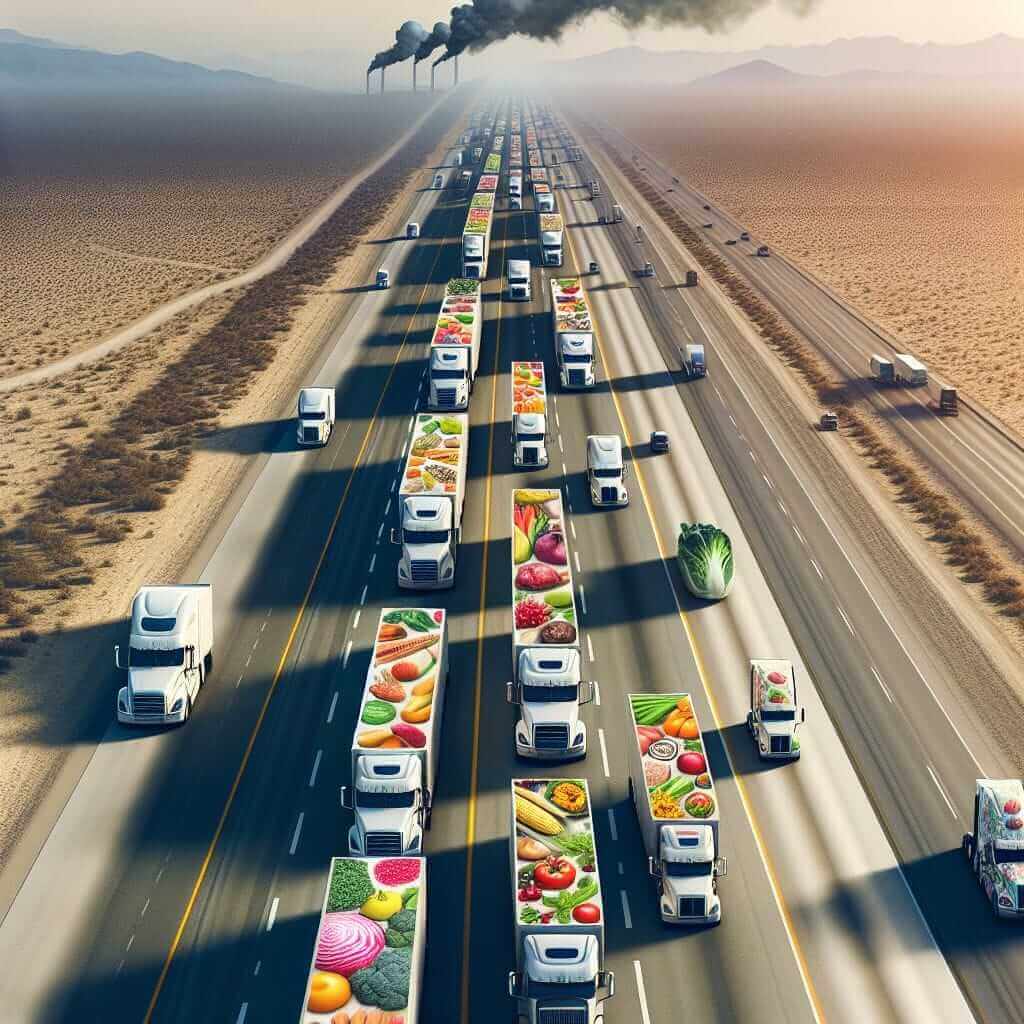The IELTS Reading test can be challenging due to its vast range of topics, including current global issues. One such pertinent topic is how the global food industry contributes to climate change. This topic has become increasingly popular due to the growing concerns about the environmental impact of food production. Understanding how to tackle such topics effectively can significantly improve your IELTS Reading score.
In this article, we’ll explore a sample IELTS Reading passage on the topic “How does the global food industry contribute to climate change?” along with various question types that you might encounter in the test. We’ll provide detailed answers, vocabulary tips, and grammar points to help you prepare comprehensively.
Sample IELTS Reading Passage
How Does the Global Food Industry Contribute to Climate Change?
The global food industry plays a significant role in contributing to climate change through various means. Food production, transportation, storage, and consumption all have environmental impacts, which collectively add to the greenhouse gases in the atmosphere.
Firstly, agricultural practices, including the use of fertilizers and pesticides, are significant sources of greenhouse gases. The cultivation of crops like rice and the raising of livestock, especially cattle, produce methane—a gas with 25 times the impact of carbon dioxide over a century.
Secondly, food transportation constitutes a substantial portion of carbon emissions. Foods are often transported over long distances, using various modes of transportation that rely on fossil fuels. This ‘food miles’ concept highlights the environmental cost of our food choices.

Additionally, the storage and refrigeration of food items in large facilities consume a tremendous amount of energy. These facilities often depend on non-renewable energy sources, which further exacerbates the greenhouse gas problem.
Moreover, food waste adds to the issue as decomposing organic waste in landfills produces methane. It is estimated that nearly a third of the food produced globally is wasted, contributing not only to food insecurity but also to climate change.
In conclusion, the global food industry has a multifaceted impact on climate change. Addressing these issues requires comprehensive strategies, including sustainable farming practices, local food sourcing, reducing food waste, and shifting towards renewable energy in food production and storage.
Reading Practice Questions
Questions 1-5: Identifying Information (True/False/Not Given)
- Agriculture is the only source of greenhouse gases related to food production.
- Methane is more impactful than carbon dioxide on climate change.
- Transporting food produces more emissions than growing it.
- Food storage facilities mostly use renewable energy sources.
- One-third of the food produced globally is wasted.
Questions 6-8: Matching Information
Match each statement to the correct concept in the passage.
- Methane production from rice and cattle.
- Energy consumption in food refrigeration.
- Long-distance food transportation.
Questions 9-13: Sentence Completion
Complete the sentences using no more than three words from the passage.
- Agricultural practices contribute significant ____.
- Transportation of food involves long ____.
- Storage of food requires substantial ____.
- Decomposing organic waste produces ____.
- Comprehensive strategies include ____.
Answer Key
Answers to Questions 1-5:
- False. Agriculture is not the only source; transportation, storage, and food waste are also sources.
- True. Methane is noted to be 25 times more impactful than carbon dioxide over a century.
- Not Given. The passage does not specify whether transportation produces more emissions than growing food.
- False. The passage states that storage facilities often rely on non-renewable energy sources.
- True. It is estimated that nearly one-third of the food produced globally is wasted.
Answers to Questions 6-8:
- Methane production from rice and cattle -> Agricultural practices, including the use of fertilizers and pesticides, are significant sources of greenhouse gases.
- Energy consumption in food refrigeration -> Storage and refrigeration of food items in large facilities consume a tremendous amount of energy.
- Long-distance food transportation -> Food transportation constitutes a substantial portion of carbon emissions.
Answers to Questions 9-13:
- greenhouse gases.
- distances.
- energy.
- methane.
- sustainable farming practices.
Common Mistakes and Tips
- Misunderstanding the Question: Always ensure you understand what is being asked by carefully reading each question and statement.
- Time Management: Practice managing your time effectively to avoid rushing through the questions and making careless mistakes.
- Synonyms and Paraphrasing: Be mindful of synonyms and paraphrased information within the text, which can often be the key to the correct answer.
Vocabulary
- Greenhouse Gases (noun) /ˈɡriːnˌhaʊs ˈɡæsɪz/: Gases that trap heat in the atmosphere, such as carbon dioxide and methane.
- Methane (noun) /ˈmiːθeɪn/: A potent greenhouse gas with a significant impact on climate change.
- Fossil Fuels (noun) /ˈfɒsəl ˌfjuz/: Natural energy sources such as coal, oil, and gas.
Grammar Points
- Relative Clauses: Used to add extra information about a noun in the sentence. E.g., “Facilities, which depend on non-renewable energy sources, consume tremendous energy.”
- Passive Voice: Often used in academic writing to emphasize the action rather than the actor. E.g., “Methane is produced by cattle.”
Advice for High IELTS Reading Scores
- Regular Practice: Read various articles on current global issues.
- Skimming and Scanning: Develop skills to quickly identify key information in the passage.
- Expand Vocabulary: Learn synonyms and related terms to better understand paraphrased content in the passage.
By focusing on these strategies and utilizing the sample passage provided, you should be well-prepared for tackling the Reading section of the IELTS exam.